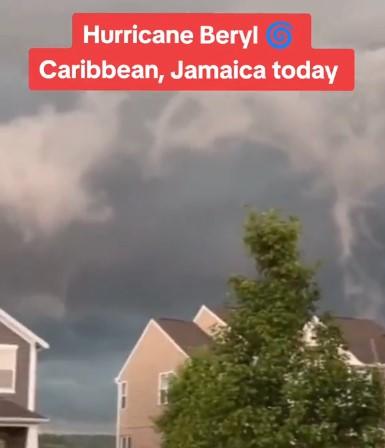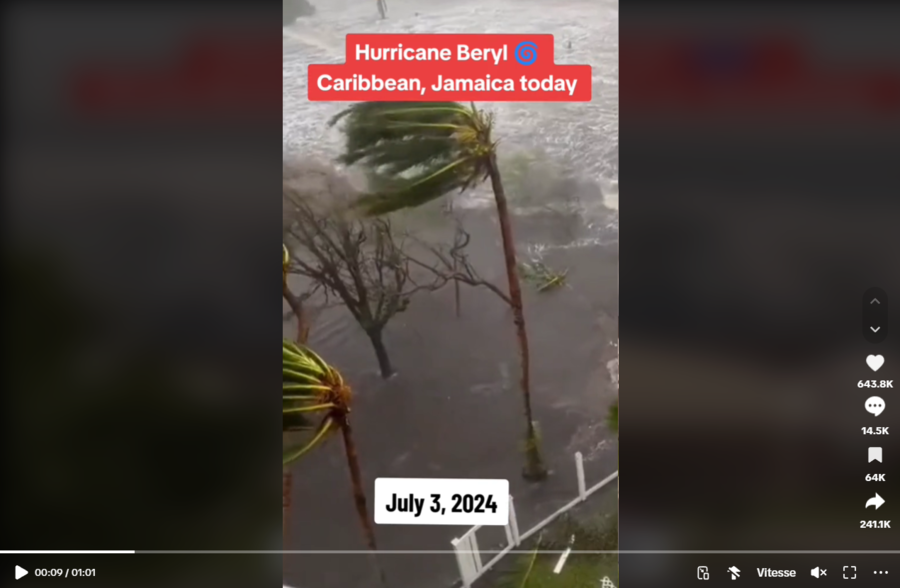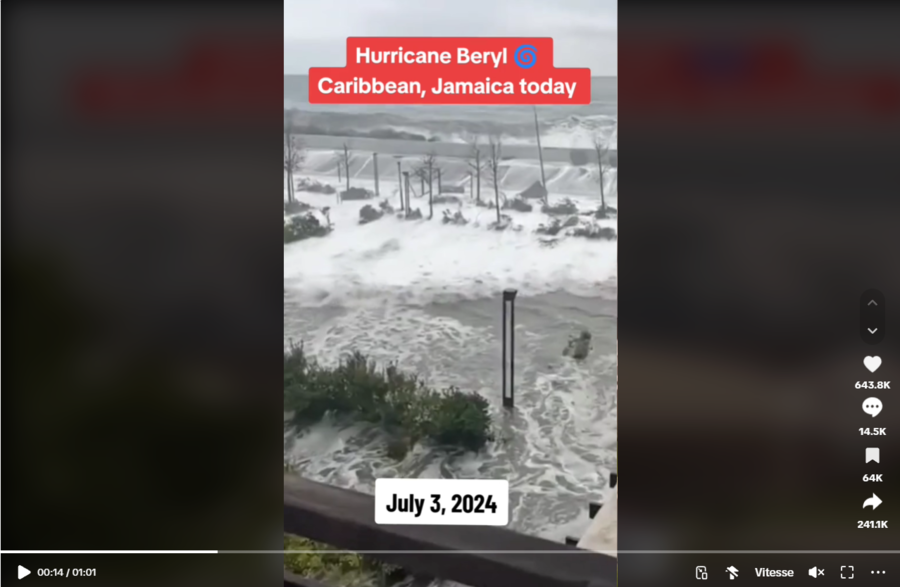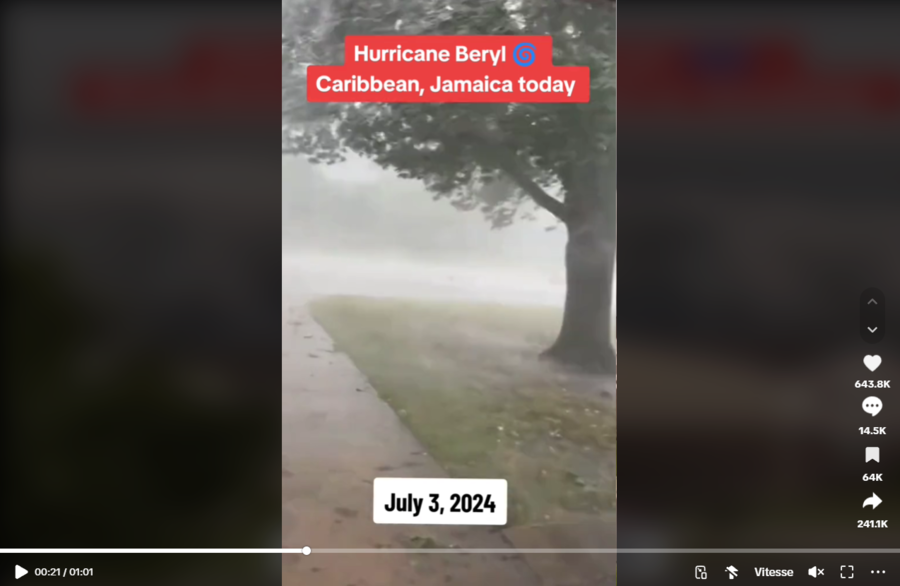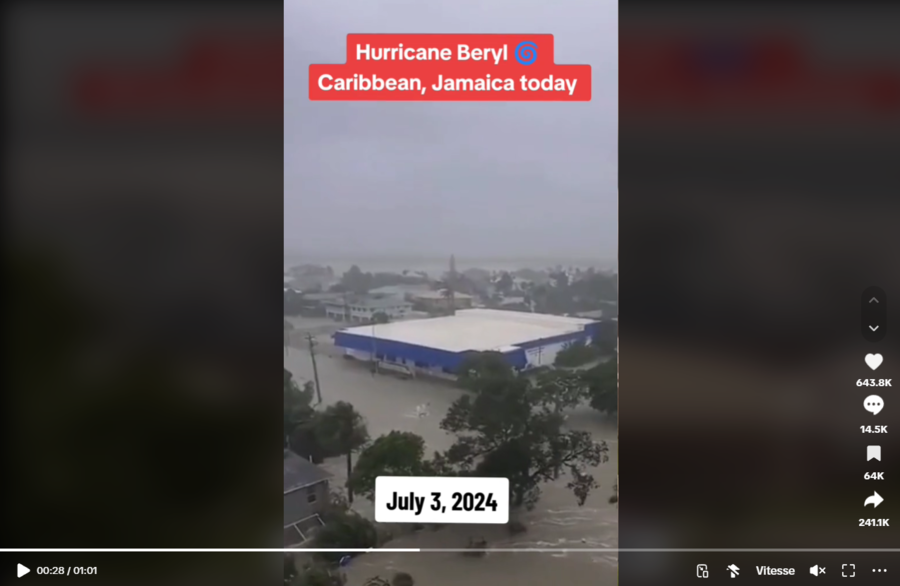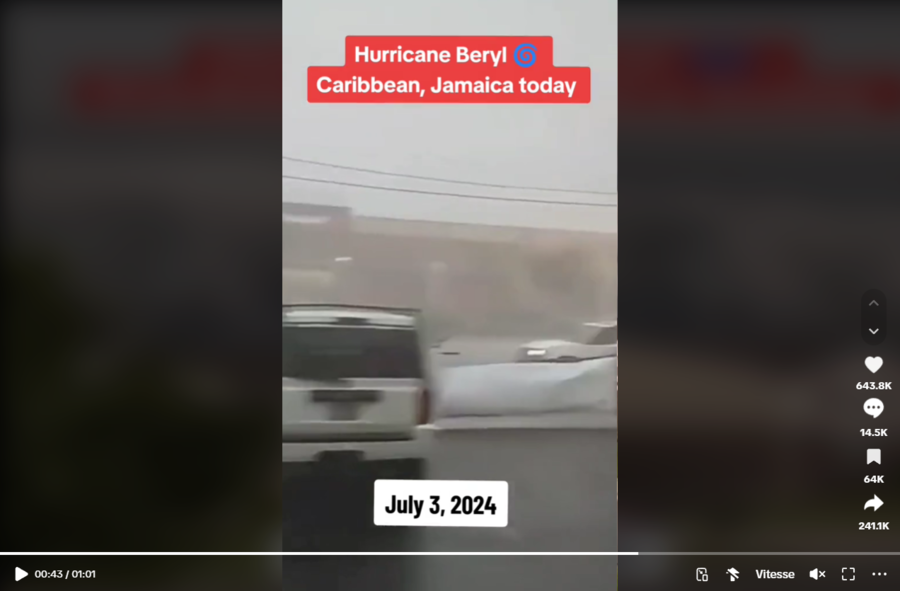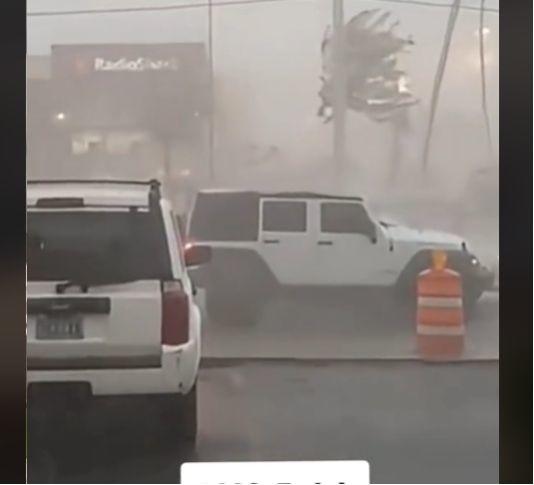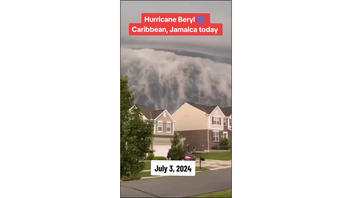
Does a video compilation show Hurricane Beryl in Jamaica on July 3, 2024? No, that's not true: The compilation consists of older, unrelated video clips from intense weather events in other places. None of the footage was shot in Jamaica.
The claim appeared in a video (archived here) on TikTok on July 3, 2024. It was captioned:
Hurricane Beryl Caribbean Jamaica today 2024 #hurricaneberyl #caribbean #jamaica #storm #2024 #viral @disaster3338 @Disaster @disaster3338
This is what the post looked like on TikTok at the time of writing:
(Source: TikTok screenshot taken on Mon Jul 8 17:09:17 2024 UTC)
Reverse image searches and geolocation techniques demonstrate that the six clips do not show Hurricane Beryl in Jamaica on July 3, 2024. The first clip, seen in the screenshot above, shows cloud formations resembling a tsunami. The footage, which was posted on Reddit, dates as far back as June 13, 2022, as reported by My Radar and Daily Star, both of which said it happened in Cincinnati.
The second clip, which started nine seconds into the video, looked like this:
(Source: TikTok screenshot taken on Tue Jul 9 1:28:50 2024 UTC)
It matches footage from Hurricane Ian in Fort Myers, Florida, in September 2022. This video, published by The Independent, was taken from a different angle and apparently at a different point in the hurricane, but at three seconds in it's clear that the building matches that in the video on TikTok at 13 seconds in.
The third clip started at the 15-second mark. This is what it looked like:
(Source: TikTok screenshot taken on Tue Jul 9 1:29:05 2024 UTC)
It was captured when Storm Bettina reached Sochi, Russia, on November 27, 2023, as reported by Unian, Novosti, Direktno, Zerkalo Nedeli and a post on Instagram.
This is what the fourth clip, starting at the 20-second mark, looked like:
(Source: TikTok screenshot taken on Tue Jul 9 1:29:20 2024 UTC)
A post on TikTok (archived here) with the same video was uploaded on June 2, 2024, more than a month before the date in the video being fact checked.
This is what the fifth clip looked like at the 27-second mark:
(Source: TikTok screenshot taken on Tue Jul 9 1:30:31 2024 UTC)
This footage was taken from Hurricane Ian in Fort Myers (archived here). The camera angle, camera movements, scenery and distinctive building with blue walls and white rooftop are a perfect match.
The sixth and final clip, starting at the 43-second mark, looked like this:
(Source: TikTok screenshot taken on Tue Jul 9 1:30:58 2024 UTC)
It could not be located through reverse image searching. The RadioShack that can be seen by flipping the image horizontally could not be geolocated in Jamaica. Here is the flipped image:
(Source: TikTok screenshot taken on Mon Jul 8 19:50:09 2024 UTC)
There are three RadioShack locations in Jamaica, according to Google; none of them visually match the one that can be seen in the clip.
The video compilation is a frequently used technique on social media that decontextualizes previous extreme weather events. It sometimes uses even computer-generated images to provoke strong reactions and user engagement. People who create or simply reshare these deceptive video compilations often horizontally flip, modify the play speed and even play them backwards to deliberately make their origins more difficult to trace.
More fact checks of misattributed extreme weather footage by Lead Stories can be found here, here and here.

